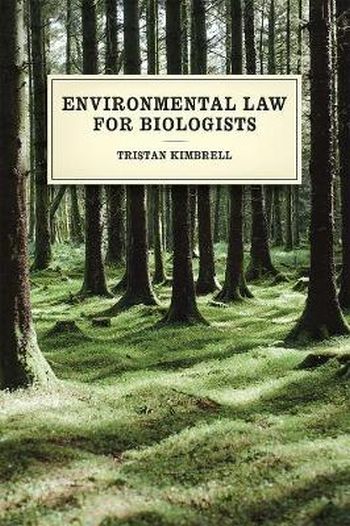
Environmental law has an unquestionable effect on the species, ecosystems, and landscapes that biologists study and vice-versa, as the research of these biologists frequently informs policy. But because many scientists receive little or no legal training, we know relatively little about the precise ways that laws affect biological systems and, consequently, about how best to improve these laws and better protect our natural resources.
With Environmental Law for Biologists, ecologist and lawyer Tristan Kimbrell bridges this gap in legal knowledge. Complete with a concise introduction to environmental law and an appendix describing the most important federal and international statutes and treaties discussed, the book is divided into four broad parts: laws that focus on individual species, like invasive species policies, the Endangered Species Act, and international treaties such as CITES; laws that focus on land, from federal public lands to agricultural regulations and urban planning; laws that focus on water, such as the Clean Water Act; and laws that focus on air, such as the Clean Air Act and international measures meant to mitigate global climate change. Written for working biologists and students alike, this book will be a catalyst for both more effective policy and enhanced research, offering hope for the manifold frictions between science and the law.